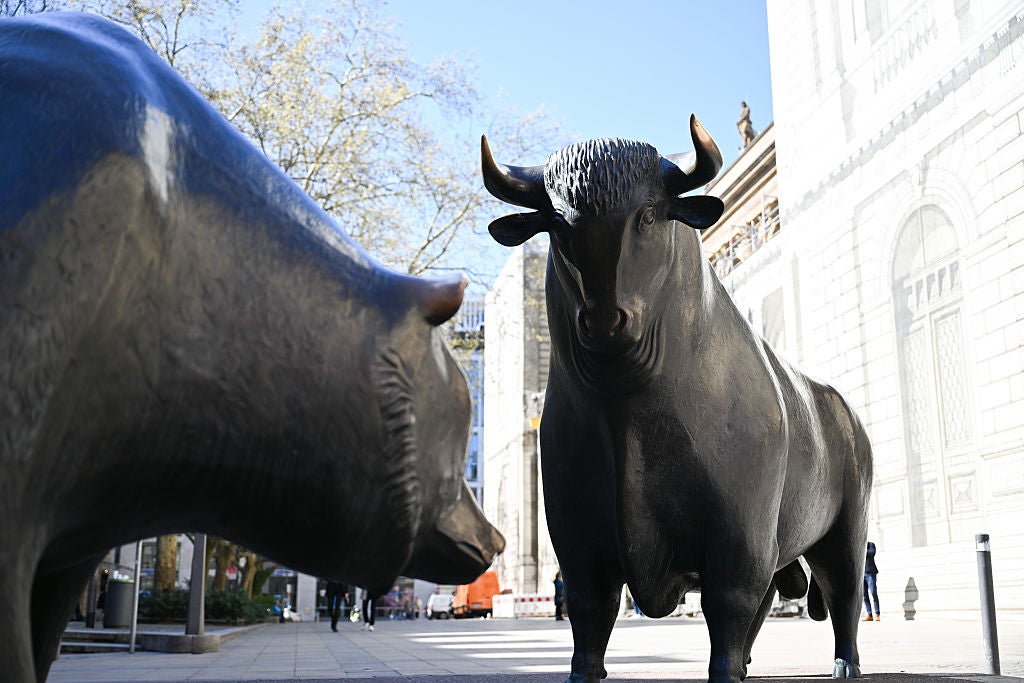The UK economy grew by 0.1 per cent in November, the Office for National Statistcs (ONS) has announced, following consecutive months falling by the same amount beforehand.
In economics circles, this – along with slower inflation and slightly falling gilt yields following a concerning, sharp rise – is being celebrated as minor wins and breathing space for the Labour government and chancellor Rachel Reeves, who says she will “fight every day” to bring meaningful, ongoing growth to the country, while prime minister Keir Starmer says it’s “a step in the right direction, but there’s much, much more we’ve got to do”.
This is all well and good for leaders, policy makers and those who deal in decisions at the top of the nation, but what does it actually mean?
And perhaps more importantly, what does it affect on an ongoing, day-to-day basis for the everyday person? Let’s face it: if a sign in a shop window says “sale! 0.1% off!”, the chances are you’re probably not going to be too interested in immediately buying. So, is the amount even notable?
To help explain these figures and what it all means in real terms, we’ve asked the experts from key areas such as banking, job recruitment and money managing to break down how economic growth ties in to real lives.
It’s worth knowing first of all what “the economy” is, of course. In very simple terms, it can be thought of as the rate at which the country as a whole produces, buys and sells goods and services – how the country trades to produce wealth. Naturally that wealth is dispersed across businesses, people and organisations, but as a whole, it feeds into the entire system which branches out into everything from taxes to pocket money.
As such, the economy growing means – in time, as knock-on effects and eventual outcomes – more money for the government to spend on services, for businesses to expand and hire, for people to receive wages and so on.
“If the economy isn’t growing people have less cash to spend which means companies make less money, employ less people and pay smaller wage increases, which in turn means people have less money to spend. It’s a destructive cycle and one that can have several knock-on effects,” says AJ Bell’s head of financial analysis, Danni Hewson.
The anticipated growth for the UK across 2025 is somewhere around 1.7 per cent, though many different, global factors play into this and it can change quickly. Additionally, these figures are historical: today’s release is about November growth. You may remember hearing as recently as last year such terms as “the UK is heading for a recession”; in actual fact, by the time those lines are uttered, a country could already be in one, we just don’t have the data for it yet. But right now, November’s numbers show the UK heading – very, very slightly – in the opposite direction.
So, on to what it means, on a more…real living level, perhaps.
Daniel Harris, director at recruitment and hiring firm Robert Walters London, explains where the link is to people having jobs and why even a small alteration in the numbers can signify meaningful change.
“The news around growth of the UK economy – while only a small shift – will be a welcome relief for many business owners, and the wider recruitment market. Hiring is directly linked to business confidence and now that some of the ‘big decisions’ have been made around major elections and the budget, there is some ‘cautious optimism’ because of more clarity this year.
“Nevertheless, economic conditions are more crucial for certain sectors: as an example, retail, hospitality, and leisure thrives on consumer spending.
“On the other hand, certain jobs can be viewed business critical: for example, lawyers and accountants will always be in-demand to manage finances and provide legal advice.
“Over the past year, economic instability has encouraged businesses to adapt. We’ve seen companies reevaluating their approaches, hiring plans and even offshoring some functions to do more with less. So, although a 0.1 per cent economic growth might seem minor, it undeniably represents progress.”
A small step on the jobs front, then. But as Mr. Harris alludes to above, it’s less about the amount of change, and more about the direction of travel.
That is emphasised when considering the words of Hann-Ju Ho, senior economist for Lloyds Bank.
“It is exciting to see business have ambitious plans for next year and are confident of growth […] while the economic outlook has been challenging, the steps firms are taking to grow should put them in a strong position for success in 2025,” he said.
Mr. Ho highlighted a recent report signalling more than a quarter of businesses intend to invest in training (27 per cent) their staff this year, while a similar number plan pay rises for their teams (24 per cent). In direct job terms, 21 per cent are keen to attact new employees.
Finally, in terms of money in the here and now, Isaac Stell – investment manager at Wealth Club – explains why the growth rate will have no immediate impact on the general person in the street, but why it can, over the medium term, impact on their savings and what they do with their money.
“0.1 per cent growth on a month to month basis is unlikely to be noticeable in the shorter term,” Mr. Stell explained. “But small, incremental or low growth does stack up over the months, so the effects will be more keenly felt – positive or negative.
“Positive growth can lead to higher living standards and more money in taxes for governments, it also filters to business confidence, boosts employee wages and so on; the reverse is also true: lower living standards and hiring for negative growth, job creation can slow and increase the gap between rich and poor. Trust in governments can also diminsh.”
As for savings and what people do with their money, that’s ultimately the big decision for individuals and families on an ongoing basis – and, after all, those decisions when grouped together across the nation is what in turn has a notable effect on the overall direction of the economy. Right now, savers are in a good spot – but there may come a turning point when money can be allocated elsewhere.
“If you already have regular payments to an ISA or pension then there’s no immediate effect, it’s again more about the stacking, month on month. It shouldn’t have an effect on UK savers and won’t make an immediate different to savings rates because the Bank of England has yet to decide on whether to cut them or not,” Mr. Stell said.
“Right now interest is higher at banks than previously; if growth figures continue in a weak pattern, they will likely cut interest rates which will flow to what banks give savers on individual accounts and reduce them in turn. Then it might become time to look at stocks and shares instead for better potential returns.”
Of course, it’s also important to remember that savings can feel like the opposite end of a see-saw to repayments.
“Banks keep a close eye on the base rate and any movements there impact on the so called ‘swap rates’ that dictate how much money they’re going to pay savers. So, savers could expect to see the return on their savings fall over the year but the trade-off is that borrowing costs should also fall back – which should lead to cheaper mortgages,” Ms. Hewson reminds us.
So, a little change in the economy can mean big changes for the people in a number of different ways – though it’s almost always over a longer timeframe.
Source: independent.co.uk



